Best of 2021: Opera | reviews, news & interviews
Best of 2021: Opera
Best of 2021: Opera
Only seven and a half months of live performance, but what riches under pressure
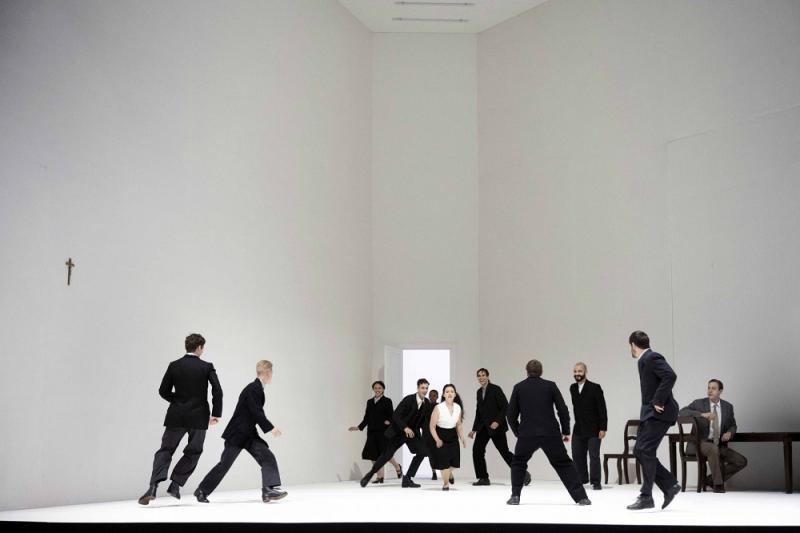
January to mid-May 2021 were the bleakest Covid months, yielding only the occasional livestream at least half as good as being there (Barrie Kosky’s magically reinvented Strauss Der Rosenkavalier from Munich, a film of Britten's The Turn of the Screw around Wilton’s Music Hall more imaginative than the actual production).
Covid guidelines had to be closely followed at all rehearsals; inspectors came along to ensure their correct execution (with a will to help, I understand). At The Grange, problems of having a full Bournemouth Symphony Orchestra in the pit were solved by a pre-recording that could be synched to time with the singers, a little miracle in itself. You suspended all qualms about whom these ventures are fundamentally for and focused exclusively on the quality.
And what quality, with some vintage new productions that would have been remarkable in any year. Top of the bill for me was Glyndebourne’s vindication of Verdi’s Luisa Miller as one of his remarkable operas, at least in its later stages. The focused, pared-back concept – always visually striking in Johannes Leiacker's design and Olaf Winter's designs – was Christof Loy’s, but the bulk of the work was done at Glyndebourne by Georg Zlabinger. The cast was revelatory, led by Mané Galoyan.as the heroine, in an ultimately disturbing relationship with top teno Charles Castronovo's Rodolfo and a heartbreaking one with Vladislav Sulimsky’s father Miller. Enrique Mazzola, succeeded by Jonathan Bloxham at later performances, focused on the intimacy, with an almost chamber-musical beauty at times. 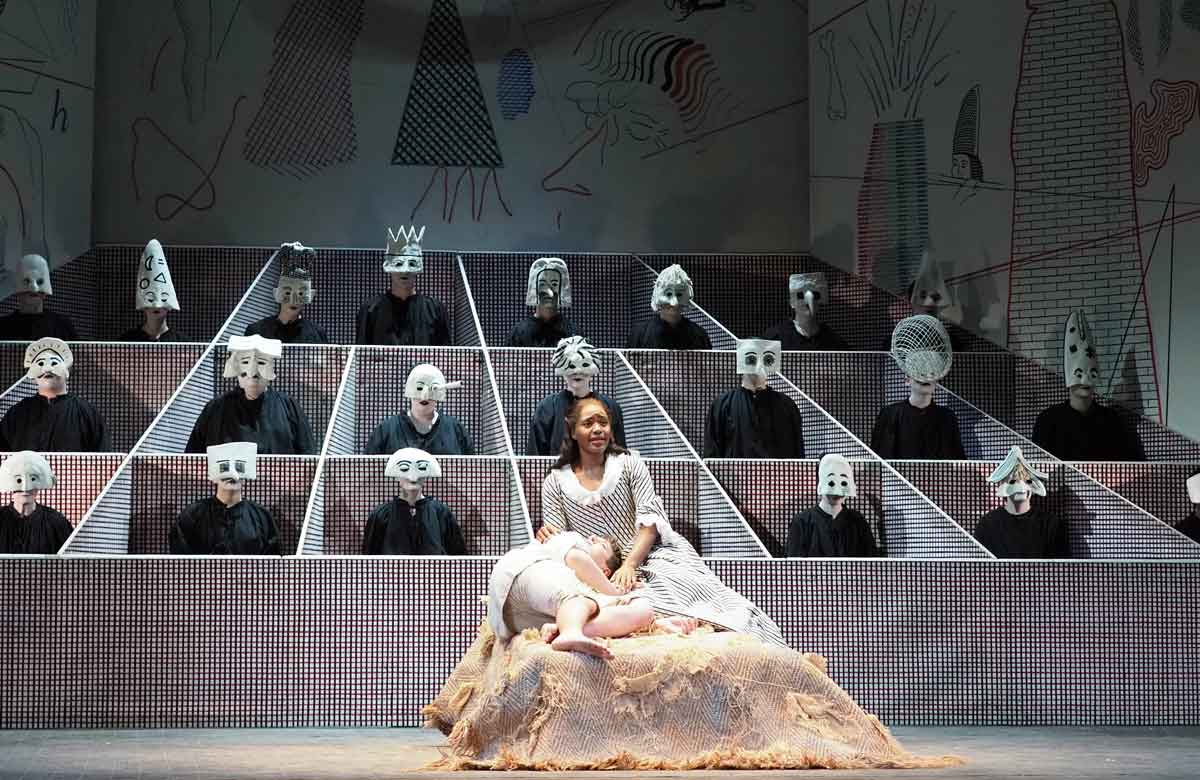 Glyndebourne launched with what I found a laboriously symbolic production of Janáček’s Káťa Kabanová by Damiano Michieletto, fighting against the intense emotion from a fine cast and a reduced London Philharmonic Orchestra and Robin Ticciati; Jessica Duchen warmed to the overall impact more than I did. It then came up with another winner: Sebastian Scotney loved what Mariame Clément made of Rossini's Il turco in Italia, "gloriously sung and played, the comic business worked well - I enjoyed every moment". The Glyndebourne Tour revival of Stravinsky's The Rake's Progress, the Hockney/Cox classic production looking handsomer than ever 46 years on, had the best overall cast I’ve ever seen in the work, young singers Frederick Jones, Nardus Williams (the two pictured above by Sisi Burn with the Glyndebourne Chorus in the Bedlam scene) and Sam Carl plus Rosie Aldridge as a crystal-clear Baba the Turk bringing new vivacity to the work.
Glyndebourne launched with what I found a laboriously symbolic production of Janáček’s Káťa Kabanová by Damiano Michieletto, fighting against the intense emotion from a fine cast and a reduced London Philharmonic Orchestra and Robin Ticciati; Jessica Duchen warmed to the overall impact more than I did. It then came up with another winner: Sebastian Scotney loved what Mariame Clément made of Rossini's Il turco in Italia, "gloriously sung and played, the comic business worked well - I enjoyed every moment". The Glyndebourne Tour revival of Stravinsky's The Rake's Progress, the Hockney/Cox classic production looking handsomer than ever 46 years on, had the best overall cast I’ve ever seen in the work, young singers Frederick Jones, Nardus Williams (the two pictured above by Sisi Burn with the Glyndebourne Chorus in the Bedlam scene) and Sam Carl plus Rosie Aldridge as a crystal-clear Baba the Turk bringing new vivacity to the work.
Garsington aimed high with Bruno Ravella’s new production of Der Rosenkavaier, using the Kloke reduction of the Strauss score as Jurowski had in Munich; it sounded rich in the beautiful pavilion on the Wormsley Estate, and is well worth catching for free on the excellent, EU funded OperaVision website.The hit of the season, though, was a predictable riot of gags from Cal McCrystal for Rossini’s Le Comte Ory, complimented by double-jointed and coloratura activity by the stunning Andrea Carroll (pictured below with Patricia Bardon and Ladies in Waiting). Getting round social distancing problems in the substitute bed-trick trio involved quite some ingenuity. 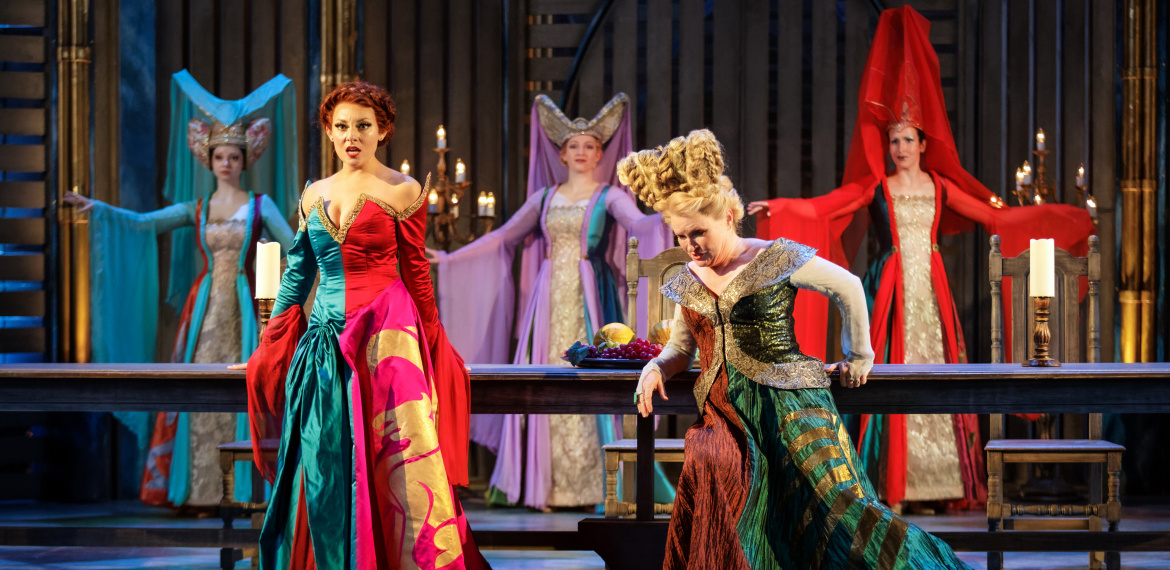 As Richard Bratby, who also chose the Garsington Rossini, points out, “if HMS Pinafore [English National Opera’s second new production of 2022] hasn't responded quite so well to McCrystal’s knockabout aesthetic, he's still the best thing to happen to comic opera in this country for a very long time."
As Richard Bratby, who also chose the Garsington Rossini, points out, “if HMS Pinafore [English National Opera’s second new production of 2022] hasn't responded quite so well to McCrystal’s knockabout aesthetic, he's still the best thing to happen to comic opera in this country for a very long time."
From Spamalot history to a more earnest chronicle, this time Russian, and Grange Park Opera pulled off a triumphantly well cast and conducted (by Mikhail Tatarnikov) double whammy of Rimsky-Korsakov’s The Maid of Pskov and its “prequel”, The Boyarina Vera Sheloga, as Ivan the Terrible (two more Korsakov rarities to tick off the list). Clive Bayley metamorphosed into Stalin – not too subtle an historical parallel, this, from David Pountney – most convincingly (pictured below by Manuel Harlan) RIchard and Stephen Walsh also hailed this major coup in GPO’s very impressive Theatre in the Woods, an Italian-style opera house without the trimmings but with very impressive acoustics (in my first experience of the venue). 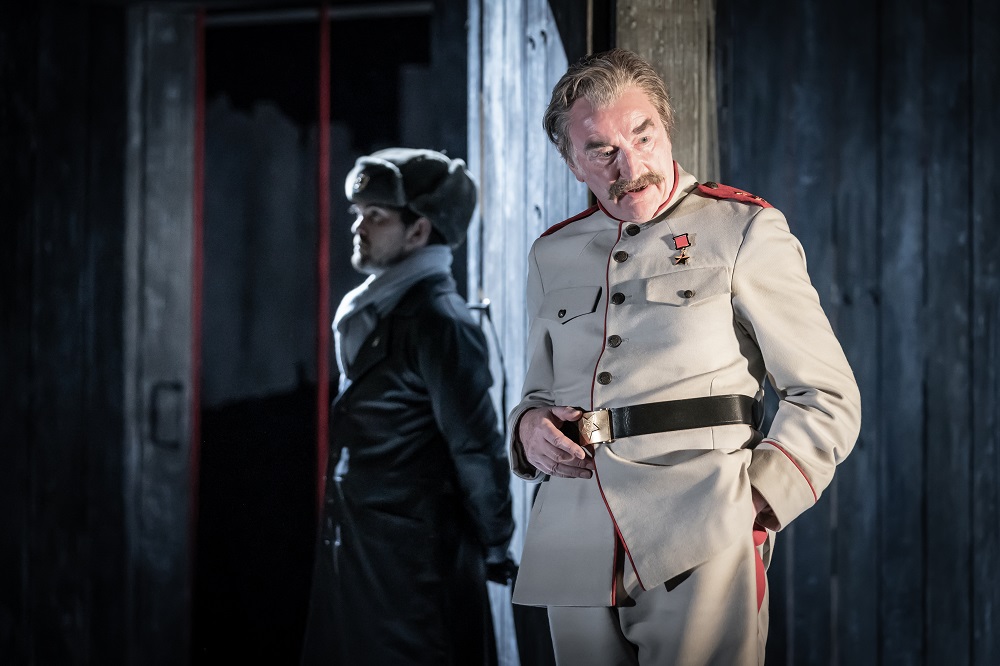 The company boasted a starry Falstaff with Sir Bryn as Sir John, but Alexandra Coghlan preferred Roland Wood in David McVicar’s new production for Scottish Opera: “not only handsome - flooded with colour and imagery - but also both genuinely funny and subversively dark. Elizabeth Llewellyn sang a radiant, velvety Alice.” Alas, AC’s review wasn’t for us, but this staging should return. As did the same company’s Così fan tutte to St Mary’s Haddington during the Lammermuir Festival. Christopher Lambton, who reviewed it online late last year, found that “all the wit and sparkle promised by the recording was immaculately preserved…It wasn’t a 'deep' Così, but frankly, who wanted deep in 2021?”
The company boasted a starry Falstaff with Sir Bryn as Sir John, but Alexandra Coghlan preferred Roland Wood in David McVicar’s new production for Scottish Opera: “not only handsome - flooded with colour and imagery - but also both genuinely funny and subversively dark. Elizabeth Llewellyn sang a radiant, velvety Alice.” Alas, AC’s review wasn’t for us, but this staging should return. As did the same company’s Così fan tutte to St Mary’s Haddington during the Lammermuir Festival. Christopher Lambton, who reviewed it online late last year, found that “all the wit and sparkle promised by the recording was immaculately preserved…It wasn’t a 'deep' Così, but frankly, who wanted deep in 2021?”
“Classic, no-fuss virtues” were also appreciated by Boyd Tonkin in the revival of Rodula Gaitanou’s “clearly staged and deeply affecting” La traviata for Opera Holland Park. Kudos to the company for its handsome, spacious sail tent and acting space. It managed the usual Italian rarity, Mascagni's L'amico Fritz and a rather bald Cunning Little Vixen, musically superb. This was a year for top-notch leadership from outstanding conductors who happen to be women on the operatic stage: in OHP’s case, glamorously gowned Beatrice Venezifor the Mascagni, Jessica Cottis for the Janáček. 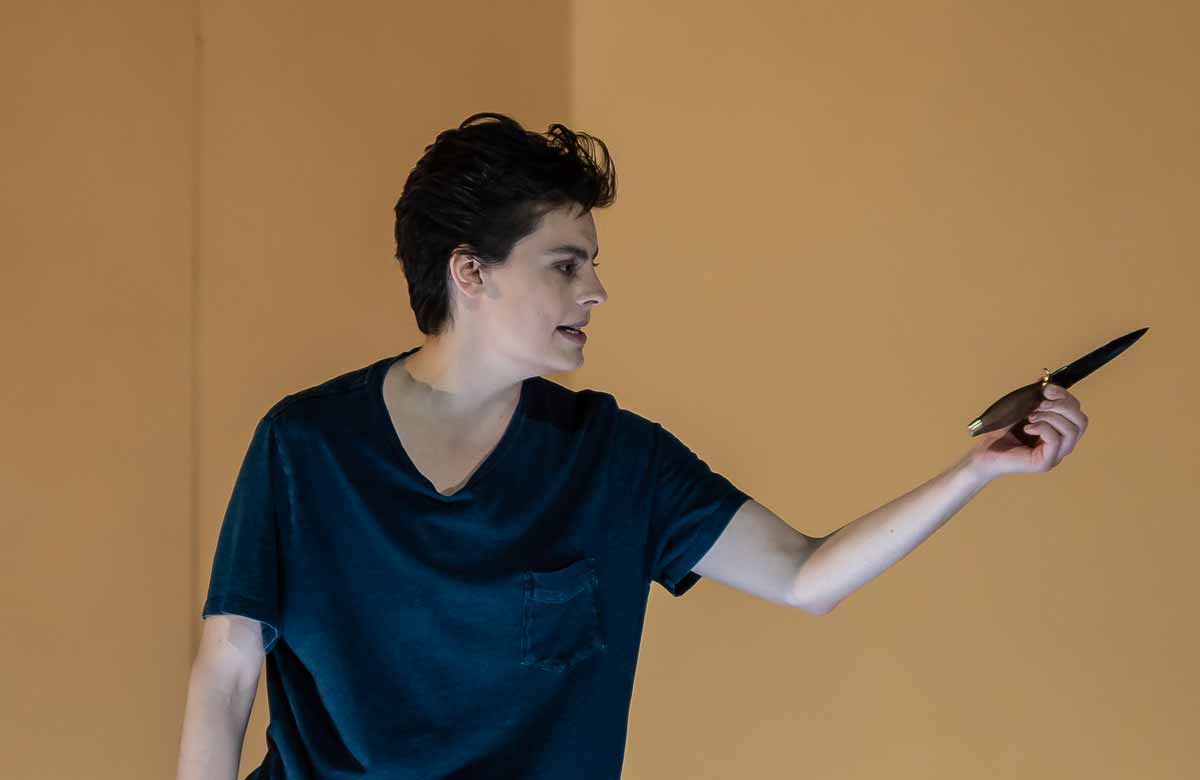 Though the Royal Opera’s first main season gambit, artistic director Oliver Mears’ new production of Verdi’s Rigoletto, felt too routine too often, the long-delated Janáček Jenůfa scoured the soul as it must, with supremely vivid performances from the astonishing Asmik Grigorian and Karital Mattila. Some faults in the sound balance due to a sound stage that went up and just a few questionable production gambits left it short of perfection. Which I couldn't say about an earlier, May flourish of unpredictable brilliance from the dream team of director Richard Jones and Mark Wigglesworth in a Mozart La clemenza di Tito highly charged from start to finish. Jones's latest Wagner Ring launch with The Valkyrie at English National Opera had major casting problems; there was none here. What a revelation in a uniformly fine ensemble to discover singing actors many of us didn’t know, above all Emily D'Angelo (pictured above by Clive Barda), though Nicole Chevalier, Angela Brower, Edgaras Monvidas and Christina Gansch also made huge impressions
Though the Royal Opera’s first main season gambit, artistic director Oliver Mears’ new production of Verdi’s Rigoletto, felt too routine too often, the long-delated Janáček Jenůfa scoured the soul as it must, with supremely vivid performances from the astonishing Asmik Grigorian and Karital Mattila. Some faults in the sound balance due to a sound stage that went up and just a few questionable production gambits left it short of perfection. Which I couldn't say about an earlier, May flourish of unpredictable brilliance from the dream team of director Richard Jones and Mark Wigglesworth in a Mozart La clemenza di Tito highly charged from start to finish. Jones's latest Wagner Ring launch with The Valkyrie at English National Opera had major casting problems; there was none here. What a revelation in a uniformly fine ensemble to discover singing actors many of us didn’t know, above all Emily D'Angelo (pictured above by Clive Barda), though Nicole Chevalier, Angela Brower, Edgaras Monvidas and Christina Gansch also made huge impressions
Gansch’s hyper-expressivity was one aspect of an exceptionally fine line-up for the BBC Cardiff Singer of the World 2021 finale. The winner could have been soprano Masabane Cecilia Rangwanasha or mezzo Natalia Kutateladze as well as Korean baritone Jihoon Kim, who did take the first prize. I can’t help feeling that the wonderful Roberta Alexander might have swayed her fellow jurors too much in favour of Rangwanasha’s impassioned spiritual in the song finale, which should have gone to Gansch or Madagascan baritone Michael Arivony, while the biggest thrill of the overall finale, for me, was Rangwanasha’s dazzlingly authoritative performance of Elisabetta’s big Act Five aria in Verdi’s Don Carlo. This young South African (pictured below by Ellie Kurttz) has it all; we heard more of her Elisabetta in Act Two of the opera at a Royal Opera Jette Parker Young Artists’ showcase which also revealed a dazzling group in this toughest of years. 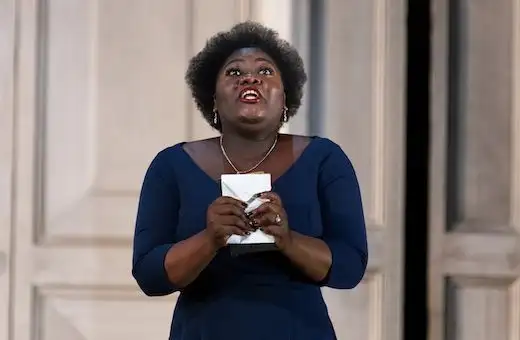 The other top promise of the year, for me, came from 28-year-old lyric soprano Johanna Wallroth in a stunning recital with brilliant pianist Magnus Svensson at a Birgit Nilsson Days recital near the farm on the Bjäre peninsula in southwest Sweden where the great singer grew up: my only trip to any overseas festival this year, via Copenhagen, one for which I’m profoundly grateful. In a final gala Wallroth teamed up to sing Strauss's Sophie to former stipendium winner Emma Sventelius's Octavan and masterclass star Miah Persson's Marschallin in plums from Der Rosenkavalier.
The other top promise of the year, for me, came from 28-year-old lyric soprano Johanna Wallroth in a stunning recital with brilliant pianist Magnus Svensson at a Birgit Nilsson Days recital near the farm on the Bjäre peninsula in southwest Sweden where the great singer grew up: my only trip to any overseas festival this year, via Copenhagen, one for which I’m profoundly grateful. In a final gala Wallroth teamed up to sing Strauss's Sophie to former stipendium winner Emma Sventelius's Octavan and masterclass star Miah Persson's Marschallin in plums from Der Rosenkavalier.
It was with a profound sense of shock that we learned of that most remarkable opera director Graham Vick’s untimely death from Covid complications in May. He’d inspired my students in a three-hour Zoom session on Prokofiev’s War and Peace, and the last message I had was about his plans for RhineGold with his beloved and always iconoclastic Birmingham Opera Company. It happened after his passing, and with such high-level performances from all involved, not least Brum-born conductor Alpesh Chauhan’s first Wagner with a full City of Birmingham Symphony Orchestra, that the event turned into a celebration of all that had been achieved, and would continue to be achieved, by this company with an uncrushable spirit of opera for all As Richard Bratby, in his second choice, points out, "BOC's work has never seemed more urgent, or more necessary". Pictured below by Andrew Fox: gods briefly triumphant, rainbow people crushed.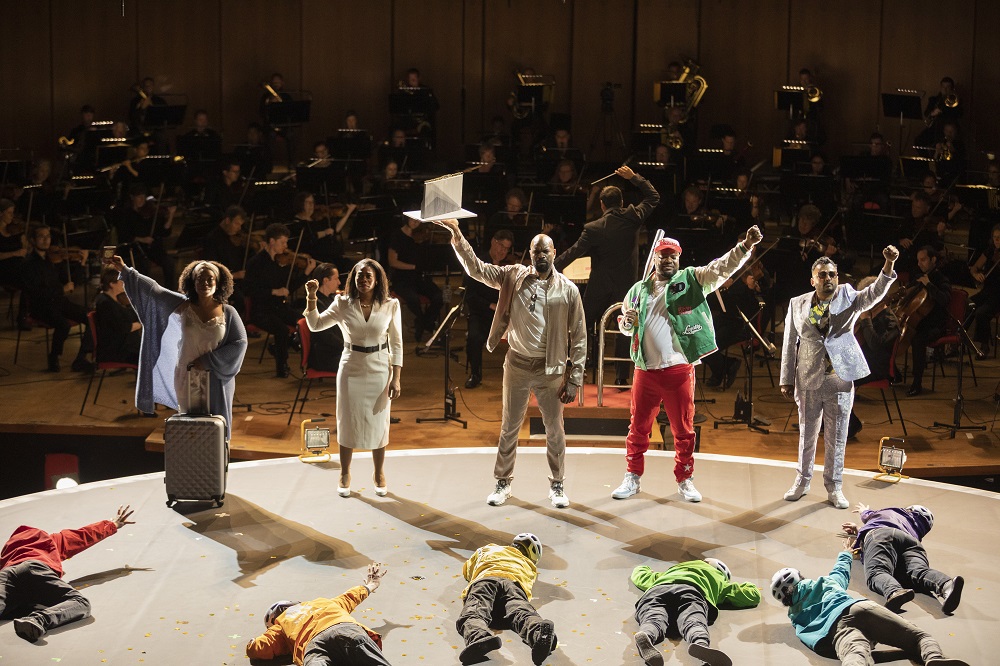 A moving coda to the operatic year came in the shape of pocket Bartók, Bluebeard’s Castle, reimagined as a heartbreaking drama of dementia in the unfamiliar surroundings of what used to be the Limelight Club, now.Stone Nest. Of the two casts, or rather mixed casts, I saw Susan Bullock’s astounding performance as a confused wife and Gerald Finley’s tender-frustrated husband; Alexandra reinforces my sense of wonder at what they achieved. But I was glad to catch another lead, Gweneth-Ann Jeffers, in a special collaboration with dementia sufferers, Judith’s Castle, a work of great integrity by a young composer to watch, Electra Perivolaris. AC’s words on the main event could equally well apply to its vital add-on: “this confronting, intimate staging was everything fringe opera should be.”
A moving coda to the operatic year came in the shape of pocket Bartók, Bluebeard’s Castle, reimagined as a heartbreaking drama of dementia in the unfamiliar surroundings of what used to be the Limelight Club, now.Stone Nest. Of the two casts, or rather mixed casts, I saw Susan Bullock’s astounding performance as a confused wife and Gerald Finley’s tender-frustrated husband; Alexandra reinforces my sense of wonder at what they achieved. But I was glad to catch another lead, Gweneth-Ann Jeffers, in a special collaboration with dementia sufferers, Judith’s Castle, a work of great integrity by a young composer to watch, Electra Perivolaris. AC’s words on the main event could equally well apply to its vital add-on: “this confronting, intimate staging was everything fringe opera should be.”
Amen to more of that in 2022, and to the continuation of live performance by means of vaccine passes and full masks for the audiences, as is happening here in Italy as I write. They should have been introduced in the UK long ago; it’s the only way forward to avoid disaster for the arts. And should there be yet more shutdowns, may our reluctant reversion to online viewing yield more films as brilliant as that recently released by Irish National Opera of Gerald Barry's disorienting whizz though both Alice books, a live highight of pre-lockdown 2020 at the Royal Opera and now captured for posterity with another top cast. Looking forward to the irish genius's very personal take on Wilde's Salome (susbtituting "type" for "dance", i'll say no more) later in 2022.
Explore topics
Share this article
The future of Arts Journalism
You can stop theartsdesk.com closing!
We urgently need financing to survive. Our fundraising drive has thus far raised £49,000 but we need to reach £100,000 or we will be forced to close. Please contribute here: https://gofund.me/c3f6033d
And if you can forward this information to anyone who might assist, we’d be grateful.

Subscribe to theartsdesk.com
Thank you for continuing to read our work on theartsdesk.com. For unlimited access to every article in its entirety, including our archive of more than 15,000 pieces, we're asking for £5 per month or £40 per year. We feel it's a very good deal, and hope you do too.
To take a subscription now simply click here.
And if you're looking for that extra gift for a friend or family member, why not treat them to a theartsdesk.com gift subscription?
more Opera
 La bohème, Opera North review - still young at 32
Love and separation, ecstasy and heartbreak, in masterfully updated Puccini
La bohème, Opera North review - still young at 32
Love and separation, ecstasy and heartbreak, in masterfully updated Puccini
 Albert Herring, English National Opera review - a great comedy with depths fully realised
Britten’s delight was never made for the Coliseum, but it works on its first outing there
Albert Herring, English National Opera review - a great comedy with depths fully realised
Britten’s delight was never made for the Coliseum, but it works on its first outing there
 Carmen, English National Opera review - not quite dangerous
Hopes for Niamh O’Sullivan only partly fulfilled, though much good singing throughout
Carmen, English National Opera review - not quite dangerous
Hopes for Niamh O’Sullivan only partly fulfilled, though much good singing throughout
 Giustino, Linbury Theatre review - a stylish account of a slight opera
Gods, mortals and monsters do battle in Handel's charming drama
Giustino, Linbury Theatre review - a stylish account of a slight opera
Gods, mortals and monsters do battle in Handel's charming drama
 Susanna, Opera North review - hybrid staging of a Handel oratorio
Dance and signing complement outstanding singing in a story of virtue rewarded
Susanna, Opera North review - hybrid staging of a Handel oratorio
Dance and signing complement outstanding singing in a story of virtue rewarded
 Ariodante, Opéra Garnier, Paris review - a blast of Baroque beauty
A near-perfect night at the opera
Ariodante, Opéra Garnier, Paris review - a blast of Baroque beauty
A near-perfect night at the opera
 Cinderella/La Cenerentola, English National Opera review - the truth behind the tinsel
Appealing performances cut through hyperactive stagecraft
Cinderella/La Cenerentola, English National Opera review - the truth behind the tinsel
Appealing performances cut through hyperactive stagecraft
 Tosca, Royal Opera review - Ailyn Pérez steps in as the most vivid of divas
Jakub Hrůša’s multicoloured Puccini last night found a soprano to match
Tosca, Royal Opera review - Ailyn Pérez steps in as the most vivid of divas
Jakub Hrůša’s multicoloured Puccini last night found a soprano to match
 Tosca, Welsh National Opera review - a great company reduced to brilliance
The old warhorse made special by the basics
Tosca, Welsh National Opera review - a great company reduced to brilliance
The old warhorse made special by the basics
 BBC Proms: The Marriage of Figaro, Glyndebourne Festival review - merriment and menace
Strong Proms transfer for a robust and affecting show
BBC Proms: The Marriage of Figaro, Glyndebourne Festival review - merriment and menace
Strong Proms transfer for a robust and affecting show
 BBC Proms: Suor Angelica, LSO, Pappano review - earthly passion, heavenly grief
A Sister to remember blesses Puccini's convent tragedy
BBC Proms: Suor Angelica, LSO, Pappano review - earthly passion, heavenly grief
A Sister to remember blesses Puccini's convent tragedy
 Orpheus and Eurydice, Opera Queensland/SCO, Edinburgh International Festival 2025 review - dazzling, but distracting
Eye-popping acrobatics don’t always assist in Gluck’s quest for operatic truth
Orpheus and Eurydice, Opera Queensland/SCO, Edinburgh International Festival 2025 review - dazzling, but distracting
Eye-popping acrobatics don’t always assist in Gluck’s quest for operatic truth

Add comment